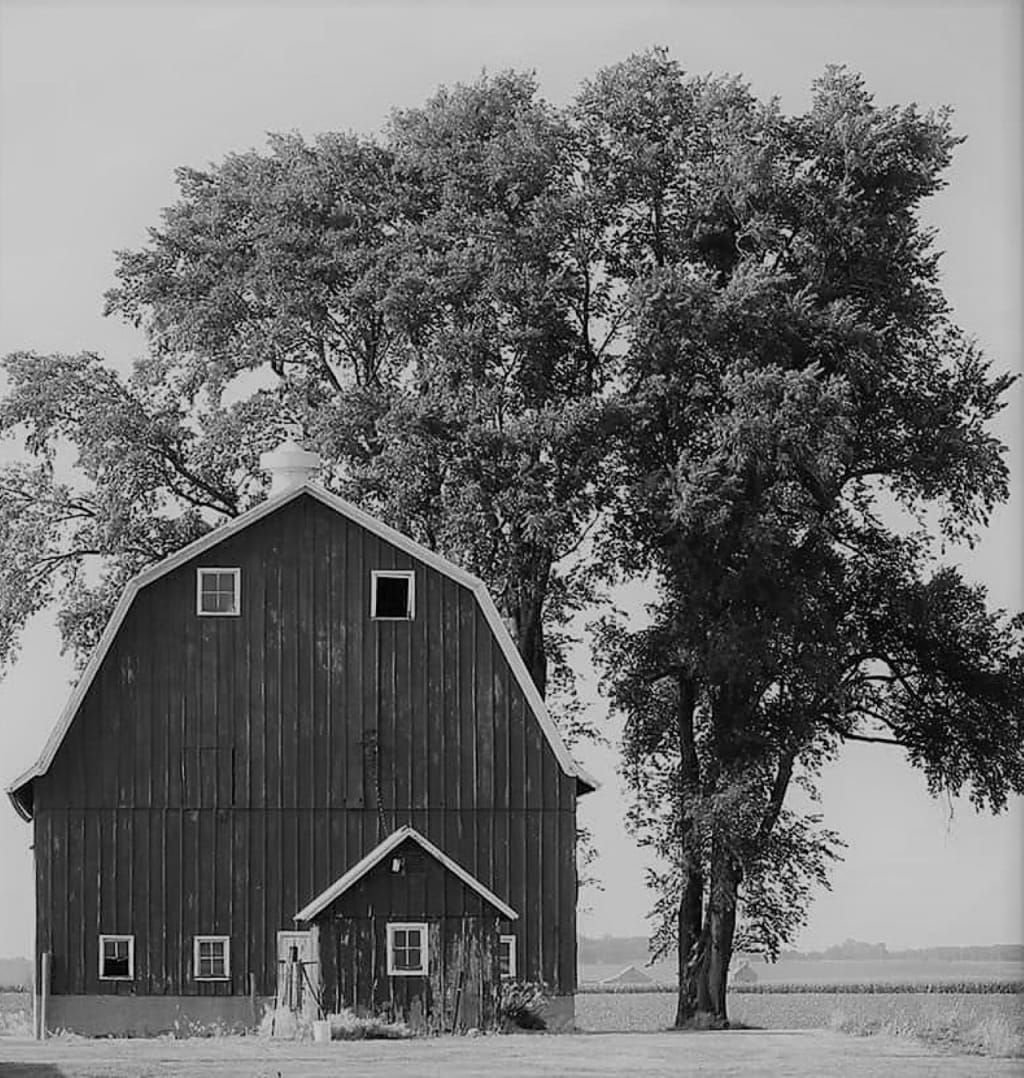
Gertie felt at home as soon as she stepped off the plane, taking in a huge gulp of crisp, northern air. Despite never having visited her parent’s hometown of Lubeck, she felt as if she were returning somewhere warm and familiar, like putting on a cozy sweater. It was strange – to feel as though you inherently belong somewhere you’ve never actually been. “Must just be the stories...” she thought to herself. Gertie clutched her father’s black notebook to her hip as she walked off the tarmac.
The shiny, little black cab whizzed through the streets like a fly as Gertie tried to take in her surroundings. The bustling town, full of narrow alleys, sun-soaked cobblestone streets, and gothic brick buildings with geometric stacked roofs, looked more Dutch than German. Old German...her people. “The Queen of the Hanseatic League”, the merchant town was heavily bombed back in ’42 but had since been rebuilt to its former ancient glory. Gertie gingerly flipped the pages in the black notebook to the satin ribbon placeholder. She glanced down at the address written in her father’s handwriting for the fifth time, nervous whether they were going the right way. The smooth, leather exterior of the notebook stuck to her warm fingers. Gertie was headed east of the city to a small cottage, where her parents had lived early in their marriage, on the banks of the Trave.
It seemed like an eternity in the cab, but she finally reached her destination. The cabbie pulled up to an ashy wooden fence and dropped Gertie off at the gate. The cottage looked just like one of her father’s cuckoo clocks, with its brown shingled roof and red shutters. She almost expected a couple of figurines to pop out of those windows with steins of beer and accordions. The overgrown grasses in the front yard scratched her bare shins as she walked to the door. She put the giant, clunky key into the lock and turned it with a “click”.
The interiors of the cottage looked the exact same as her parents had left it all those years ago, but the smell inside was old, musty. One could tell that some time had passed, but it seemed that there had been an intention to return, as everything was still in its proper place. Not quite stepping back in time, more like haunting the present. The main living area had a big, beautiful stone fireplace. Gertie ran her fingers along the textured wooden mantle, gathering dust on her fingertips. The photos that used to stand there were all that they had taken with them, she was told. The place felt familiar, but also somber and oh so heavy. She thought of the return never realized. Until she was there in that moment.
Her mind in a fog, Gertie slowly glided to the kitchen, half-expecting a meal to be set for her on the round dining table. The shelves were full of gadgets and nick-nacks that her friends would now consider to be antiques. It was almost comical. The oven looked as though it were made of ceramic, white and glossy with little silver handles adorning a large and small oven door. A shiny white tea kettle kettle with a red handle sat on a burning plate, with a matching red egg timer perched on the shelf above it. Her mother was always very tidy. Gertie cracked open the back door and walked onto the patio between the house and barn.
She sat on the patio step and thumbed through the pages of her father’s notebook again, landing on a roughly sketched layout of the property. “Rote Scheune” was written on the sketch of the barn out back. Gertie walked over to the barn to explore further, the cool rippling sound of the river increasing in volume as she got closer. As she unlocked the weathered red doors, she recalled a story that her father had told her. When he was a young man and her mother was just a girl, he played a prank on her by sticking chicken heads on the floor of the barn at the door’s entrance. When her mother opened the doors, she had quite a fright, and he said that he had never laughed so hard in his life. Remembering her father’s deep chuckling made Gertie smirk. She shook her head and looked to the floor, stepping her foot forward to walk in. She heard a bit of a pop and crack, and then the sound of chips of wood pinging off something metallic below, as a piece had broken from the floorboard.
As Gertie backtracked and walked around to the side of the barn to access the storm cellar, she thought of how her parents ran to shelter there during the air raids. It must’ve seemed like the end of the world. She wondered what could still be down there. Gertie unlocked the oxidizing metallic doors to the cellar, flung them open, and did her best to avoid cobwebs as she carefully stepped inside. The cellar was surprisingly empty, aside from a few bottles of wine and some boxes with a potato sack sitting on top of them, positioned directly below where the piece of floorboard had broken off. She slowly walked over to the mysterious boxes, the amber beams of afternoon sun pouring through the cellar door as her only guiding light. As she walked closer, she heard an abrupt movement from the corner of the room.
Her eyes darted to the sound and found a mouse scampering out of a crack in the wall into the light. She clutched the notebook ever tighter to her breast, her heart pounding. “Just a stupid barn mouse,” she reassured herself. Gathering her wits, she advanced to the potato sack and flicked the slivers of wood off with the back of her hand. Already having had a bit too much excitement, she cautiously opened the sack. Since the beams of light had been fading, she had to reach her hand in to explore its contents. Gertie eased her trembling fingers into the bag and felt something cold and hard, almost like a brick.
“What is this?” she said to herself, completely puzzled. She grabbed one of the heavy bricks and pulled it to the fading sunlight, the reflection bouncing back into her sea-green eyes. There, on the gold bar that she held in her hand, was stamped the parteiadler - the Nazi war eagle. The words “Deutsche Reichsbank” were etched below it along with the bar’s weight. Gertie instantly dropped the bar to the concrete floor, feeling as though she had been punched in the stomach. She felt nauseous and clammy, sweat beading on her forehead, as she curled to her knees on the dusty floor of the cellar. She hugged her knees and took a few deep breaths. “What the hell is Nazi gold doing in my family’s cellar?” she thought. She could not speak; she was beyond saying it out loud.
Gertie crawled over the concrete to the cellar door for the fresh summer air. The wind soothed her aching head as it parted her curls, something her mother used to do when she was a child. A tear dropped from the corner of her eye into the dust. She composed herself, grabbed the gold bar on the floor and returned it to the bag with the others. Attempting to move the heavy sack, Gertie knocked one of the boxes to the floor, cracking it open with a loud pop. A flood of American dollar bills spilled onto the floor. Gertie’s eyes lit up as she quickly grabbed the money and began counting it feverishly, flipping the bills between her sticky, dusty fingers. The box contained 20,000 American dollars. She sat there in total shock. “Who does this belong to? How did it get here? This makes absolutely no sense! What do I even do with all of it?!”
She wanted nothing to do with the gold bars. “Raubgold” she whispered to herself. Stolen gold. It disgusted her. As dusk set in, Gertie walked back into the barn to grab her father’s rusting shovel from the wall and walked to a big oak tree near the garden. Despite being vacant for so many years, quite a few red roses remained, climbing wildly up the trellis. Gertie began to dig a hole. She spat and cursed with each pile of German earth she ripped from the ground. The tears stung in her eyes and they streamed down her hot cheeks. She felt shame for wanting to belong here, for feeling that she did belong here. Her beautiful day dress smeared with dirt, she felt dirty as well. She felt dirty and determined to bury the gold.
Gertie scratched her way out of the pit, exhausted, sweat dripping down the small of her back. It was now dark. She walked back to the cellar and hauled the sack of gold up the stairs to its final resting place beneath the oak tree. The burlap fabric ripped into her hands as she pulled the weight, but she did not notice. She kicked the sack into the pit and began to frantically bury it, like a madman concealing a body. A dirty secret guarded by the oak.
Once the deed was done, Gertie ran to the cellar with her last ounce of energy and grabbed a bottle of wine – a red, Trollinger, 1939. She broke the lip of the bottle against the stone staircase, walked over to the disturbed ground and collapsed into the grass. The soft blades felt cool against her skin in the warm evening. She looked up at the bright northern stars, swirling in speckled patterns like the eggs her mother’s chickens used to lay. She closed her eyes and took a deep breath of the fresh summer air. It still felt familiar. Gertie rose to her elbows and took a swig of wine from the broken bottle.
Halfway through the bottle of wine and rested enough, Gertie rose to her aching feet and limped into the house. She rummaged around the coat closet next to the front door and found a beaten old typewriter case. Slinking back into the cellar, she began to stack the money into the navy blue case. She carefully placed her father’s black notebook into the case with the money, grabbed another bottle of wine, and walked up the steps in a trance. She locked all the doors and looked back at the rose bushes as she stepped to the front gate door. “Raubgold” she said to the towering oak. Gertie walked along the cobblestone street into town. She vowed to never speak of it again.
About the Creator
Paige Klaver
Hi there! My name is Paige, and I'm a Michigander who loves to travel the world, meet new people, and try new things (especially food!) I'm also an avid reader of primarily historical non-fiction, fiction, and biography.






Comments
There are no comments for this story
Be the first to respond and start the conversation.